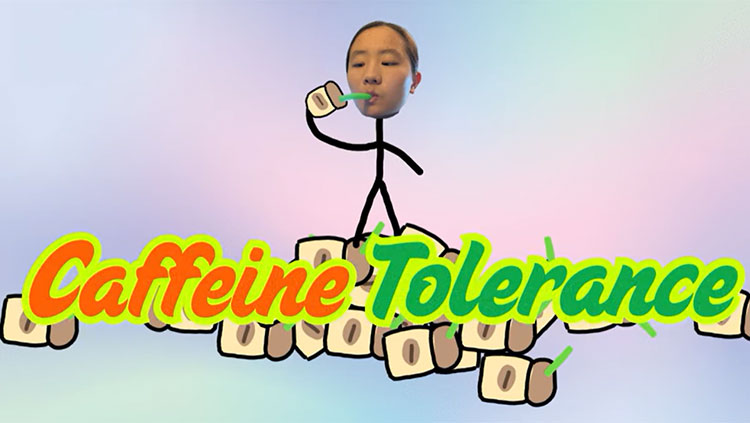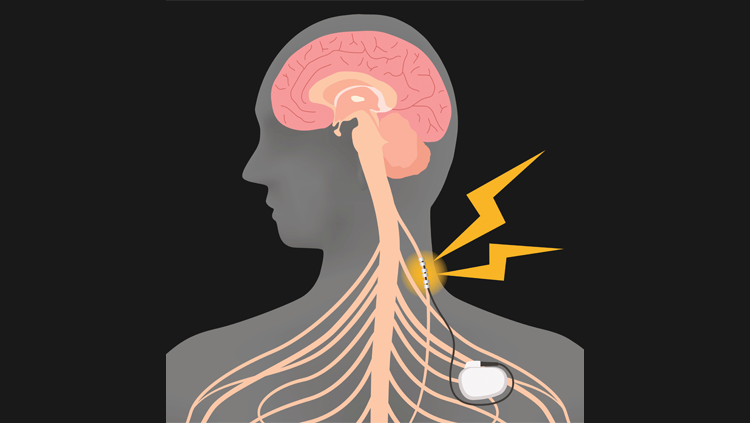Sweet Talk: The Brain and Sugar
- Published3 Feb 2015
- Reviewed3 Feb 2015
- Author Jessica P. Johnson
How does a big bowl of sugary cereal or a candy bar affect the brain? In this BrainFacts.org podcast, hear what happens in the brain during a sugar rush, and how that changes when sugar is swapped out with artificial sweeteners.
Music by Josh Woodward, used under a creative commons license.
Transcript
SfN: I'm Jessica Johnson, reporting for BrainFacts.org.
We’ve all felt that burst of sudden energy that comes after eating a candy bar. But have you ever wondered why we often crave sugary foods even when we’re not particularly hungry? And why does sugar have such a different effect on our brains than, say, a plate of lima beans?
Scientists have only begun to track down the answers to these questions, but interest in this line of research has grown as the overconsumption of sugars increasingly links to a laundry list of health problems including diabetes, heart and liver disease, and obesity.
So what happens to our brains when we consume sugar? And are sugar substitutes effective means of controlling our sugar consumption? To explore these questions, I spoke with two neuroscientists about how sugars and artificial sweeteners affect our brains.
Avena: My name is Dr. Nicole Avena, I’m an assistant professor at Mount Sinai School of Medicine in New York City. On average, the typical American consumes 22 teaspoons of added sugar each day and this is much greater than what the World Health Organization recommends. And you have to keep in mind this is added sugar that’s put on top of the sugar that’s naturally occurring in foods.
SfN: The American Heart Association recommends a maximum of only six teaspoons of added sugar for women and nine for men, approximately the amount of sugar contained in a single can of soda.
Avena: Research has found that when lab rats consume too much sugar, they will actually show changes in the brain that are consistent with what you might see with an addiction to a drug of abuse. So changes in neurotransmitter release, changes in gene expression. And this may play a role in the reason why many people have a hard time cutting back on their intake.
SfN: Normally, when we consume sweet-tasting foods, taste receptors in our taste buds send signals to the brainstem where cells that produce the neurotransmitter dopamine are located. Dopamine is released and activates the brain’s reward system, generating pleasurable sensations. This pleasure reinforces the desire to consume that sweet food again. A sweet-tasting food will stimulate the reward system even if it contains a calorie-free artificial sweetener. But there are important differences in the effects that sugars and artificial sweeteners have on the brain.
de Araujo: I am Ivan de Araujo, I am an associate fellow at the Pierce Foundation in New Haven Connecticut. And I am also associate professor of psychiatry and physiology at Yale University.
When you substitute one component in foods with another, even if you are trying to fool the brain by mimicking the taste, the brain still is going to recognize them as different. If we make an animal hungry, what we see is that if we offer them an artificially sweetened beverage, they are going to consume a lot of it initially, but somehow they detect the fact that this solution is useless in terms of compensating for their physiological state.
SfN: So how does the body eventually figure out that an artificial sweetener can’t provide the calories it desires?
de Araujo: There is some sort of caloric sensor for sugars that is not related to the ability of the mouth to sense sweetness. The rewards systems in the brain are sensitive to sugars in a way that does not depend on sweetness but does depend on the energy that sugars contain.
SfN: Sugar molecules therefore not only trigger dopamine release by stimulating sweet taste receptors, but also by stimulating neural pathways that are sensitive to energy content. Artificial sweeteners don’t appear to do this. So what does this say about the effectiveness of artificial sweeteners as sugar replacements?
de Araujo: I think that the main problem with artificial sweeteners is that they are inert physiologically. And for individuals who have an experience with sugars when they are in a state of hunger, their experience is going to be a disappointing one. So I think the problem is likely to be a behavioral switch toward sugars.
SfN: Clinical studies have shown that substituting sugars with artificial sweeteners enables only very minimal weight loss. Instead, Avena suggests some common sense advice to decrease sugar intake.
Avena: It’s important when you’re looking at a label on a food product that you’re aware of the ingredients. Many granola bars that are marketed as low calorie can often contain as much sugar as a candy bar. I think in general we evolved to understand that food was going to be scarce and so when you find it you have to eat it. It just happens to go awry a bit when we put ourselves in our modern food environment.
SfN: Thanks for listening. Check out more information about how your diet affects your brain at BrainFacts.org.


















